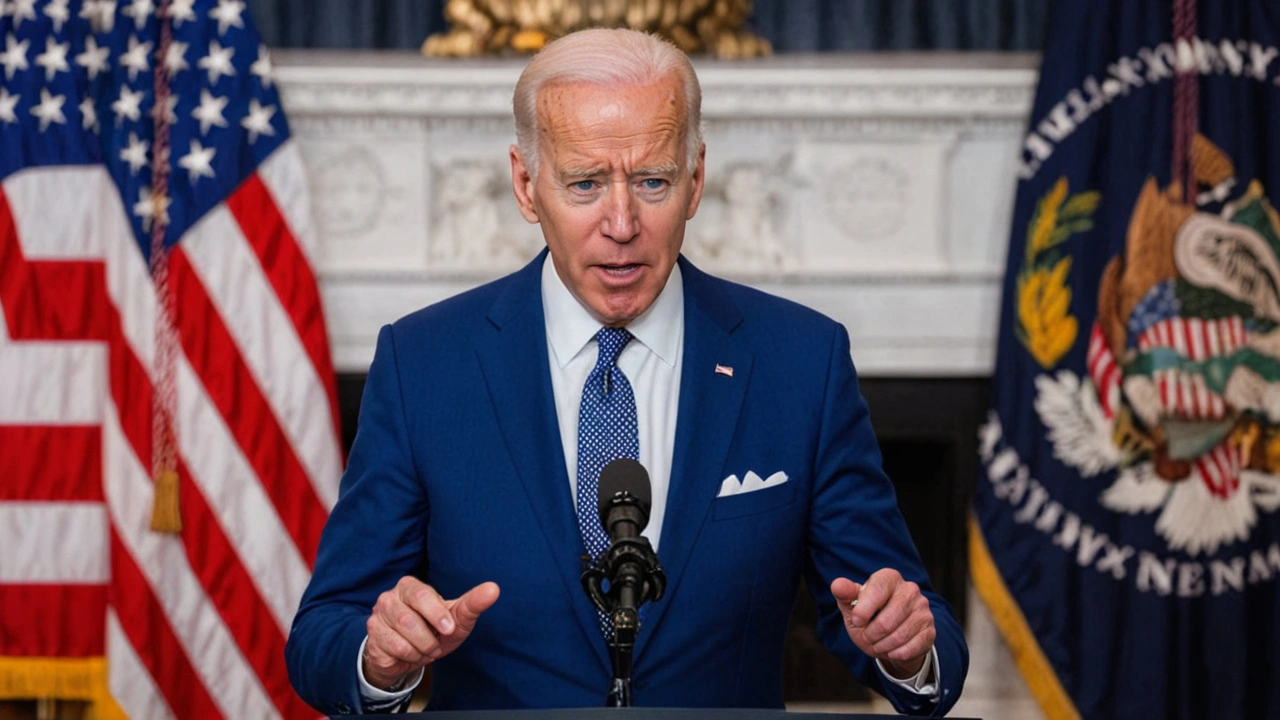President Joe Biden Tests Positive for COVID-19: What It Means for Elderly Individuals
President Joe Biden has become the latest high-profile figure to contract COVID-19, adding his name to a growing list of world leaders who have dealt with the virus. At 80 years old, Biden's age places him in a high-risk category for severe illness. However, according to his physician, his symptoms are currently mild, which include a runny nose, cough, and general malaise.
The news of Biden's diagnosis has reverberated through Congress and the American public, sparking renewed discussions about his health and fitness to lead the country, particularly as speculation mounts about his potential bid for a second term. In the meantime, the President is expected to self-isolate while maintaining his duties remotely, demonstrating his commitment to leading the nation even during illness.
Understanding COVID-19 Risks for Seniors
For individuals over the age of 80, contracting COVID-19 can be particularly concerning. Older adults are more likely to experience severe symptoms, hospitalizations, and even death due to the virus. According to the Centers for Disease Control and Prevention (CDC), 8 out of 10 COVID-19 related deaths in the United States have been among individuals aged 65 and older. This statistic underscores the critical need for preventative measures and the importance of vaccinations in this age group.
Elderly individuals often have underlying health conditions such as heart disease, diabetes, or respiratory issues, which can exacerbate the effects of COVID-19. Additionally, the immune system tends to weaken with age, making it harder for seniors to fight off infections. Symptoms of COVID-19 in elderly people can range from mild to severe, with some experiencing high fevers, difficulty breathing, chest pain, and confusion.
Preventative Measures and Treatments
Given the higher risks, it is crucial for seniors to follow strict preventative measures to avoid contracting the virus. These include wearing masks, practicing social distancing, avoiding large gatherings, and practicing good hand hygiene. Vaccinations and booster shots are highly recommended as they have been shown to significantly reduce the severity of the illness and prevent hospitalizations.
In the event that an elderly person does contract COVID-19, early detection and treatment are key. Healthcare providers may recommend antiviral medications to reduce the virus's impact. Rest, hydration, and medication to manage symptoms like fever and pain are also fundamental in supporting recovery. Biden's current treatment plan will likely follow such protocols, with his medical team closely monitoring his condition.

The Implications of Biden's Diagnosis
Biden's positive COVID-19 test has far-reaching implications not only for his health but also for his presidency. His age and health have been under scrutiny since he took office, with some critics questioning his ability to handle the rigors of the job. However, his mild symptoms and proactive approach to treatment may help to alleviate some concerns.
The President's ability to continue his duties while in isolation showcases the flexibility and resilience of the current administration in navigating unprecedented challenges. Despite the political ramifications, Biden's health scare brings to light the vulnerabilities faced by elderly Americans, urging a focus on health policies that protect the most vulnerable populations.
Concerns about Biden’s fitness to run for a second term are likely to intensify in light of his COVID-19 diagnosis. Polls and opinions within Congress may shift, impacting both his administration and the Democratic Party's strategy going forward. It also raises questions about the protocols and precautions in place at the White House to prevent the spread of the virus among senior government officials.
A Message of Caution and Hope for Seniors
Biden's situation serves as a sobering reminder of the ongoing risks posed by COVID-19, particularly to the elderly. While vaccination rates have risen and pandemic restrictions have loosened, the virus remains a significant threat. Seniors, caregivers, and health professionals must remain vigilant in protecting this vulnerable population.
At the same time, President Biden's mild symptoms and expected full recovery can be a beacon of hope. It underscores the effectiveness of vaccines and prompt medical care in mitigating the worst outcomes of the disease. As Biden continues to lead the nation through this personal health challenge, his experience may inspire others to take the necessary precautions and seek timely medical intervention if needed.
Ultimately, Biden's COVID-19 diagnosis is a crucial moment for reflecting on the intersecting issues of health, age, and leadership. It brings attention to the importance of comprehensive health strategies, the resilience of senior citizens, and the ongoing struggle against a virus that has reshaped the world. The President's journey through this illness will no doubt be closely watched and may serve as a critical chapter in the ongoing narrative of the pandemic.







7 Comments
COVID hits even presidents, but age alone isn't destiny. The virus reminds us that humility and preparation matter.
This is a glaring example of systemic vulnerability that our national security apparatus must address. The administration's lax protocols expose critical infrastructure to biothreat vectors, jeopardizing sovereign resilience. Immediate policy overhaul is non‑negotiable.
The media's hysteria over an octogenarian's sniffles is nothing short of a cheap attention grab. Real leadership should be judged by policy, not viral status.
Biden's mild case is a stark reminder that even the most protected can slip. Age is a factor but not an absolute sentence. Vaccines have turned what could be a death sentence into a manageable cold. The senior community sees this as both warning and hope. We must keep masks handy especially in crowded indoor spaces. Social distancing remains a simple yet powerful tool. Booster shots are the armor that many overlook. Healthcare providers should act swiftly with antivirals when indicated. Hydration and rest are foundational no fancy treatments needed. Family members must monitor symptoms like fever and confusion. Governments should allocate resources to home care services. Public messaging must stay calm and factual. Fear mongering only fuels panic and isolation. Community solidarity can cushion the impact of outbreaks. In the end personal responsibility combined with public health measures will decide outcomes.
stay safe and get that booster ya’ll.
Wow, it's wild seeing the President battling the same bug as many of us 😮 stay positive and keep those masks handy!
Your points are well taken and underscore the need for continued vigilance.